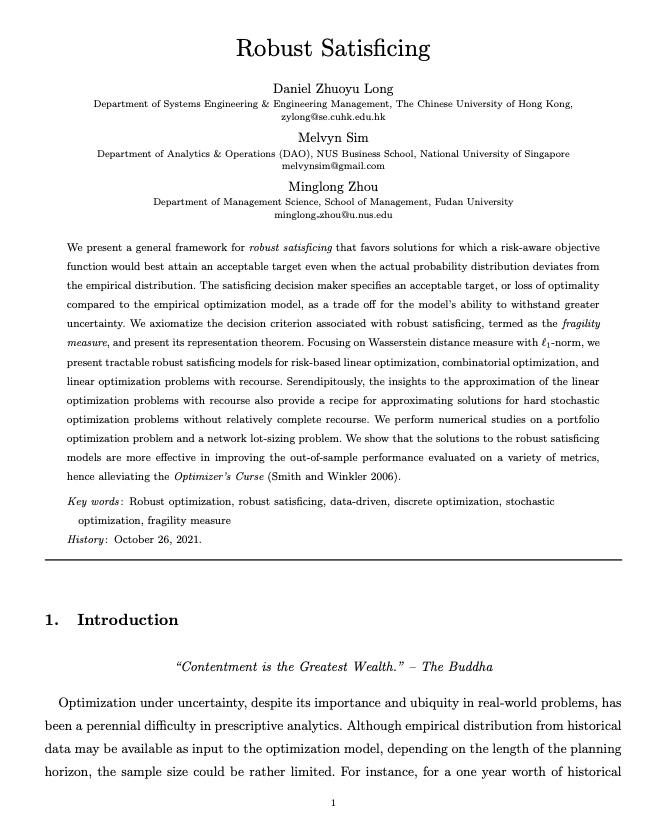We present a general framework for data-driven optimization called robustness optimization that favors solutions for which a risk-aware objective function would best attain an acceptable target even when the actual probability distribution deviates from the empirical distribution. Unlike robust optimization approaches, the decision maker does not have to size the ambiguity set, but specifies an acceptable target, or loss of optimality compared to the empirical optimization model, as a trade off for the model’s ability to withstand greater uncertainty. We axiomatize the decision criterion associated with robustness optimization, termed as the fragility measure and present its representation theorem. Focusing on Wasserstein distance measure with l1-norm, we present tractable robustness optimization models for risk-based linear optimization, combinatorial optimization, and linear optimization problems with recourse. Serendipitously, the insights to the approximation also provide a recipe for approximating solutions for hard stochastic optimization prob- lems without relatively complete recourse. We illustrate in a portfolio optimization problem and a network lot-sizing problem on how we can set targets in the robustness optimization model, which can be more intuitive and effective than specifying the hyper-parameter used in a robust optimization model. The numerical studies show that the solutions to the robustness optimization models are more effective in alleviating the Optimizer’s Curse (Smith and Winkler 2006) by improving the out-of-sample performance evaluated on a variety of metrics.

